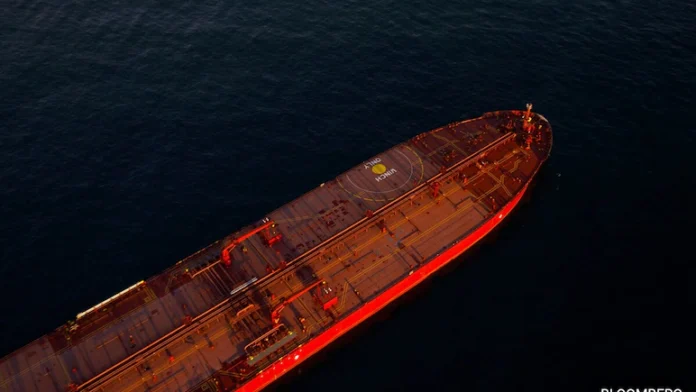Yemen’s Houthi rebel group has issued new threats targeting American commercial and naval vessels, escalating tensions in the region. As a result, the shipping industry heightened its alert status on Sunday, anticipating potential retaliatory actions from Tehran against commercial ships following recent US airstrikes on Iran’s nuclear facilities.
Greece, which boasts the world’s largest oil-tanker capacity, has advised its ship owners to reconsider any plans to navigate the Persian Gulf amid these developments. The Greek shipping ministry circulated a notice urging vessels intending to pass through the Strait of Hormuz to “reassess their passage” until conditions stabilize, suggesting that ships wait in nearby secure ports.
Naval forces in the area have cautioned that vessels linked to the US may face increased risk. Shipping behemoth A.P. Moller – Maersk A/S declared it continues to navigate through Hormuz but remains prepared to adjust its strategy based on new information.
The maritime sector’s response and its willingness to take on risk will be paramount in light of the strikes, given Iran’s proximity to the Strait of Hormuz—a vital route for about a fifth of the globe’s oil and an essential entryway into the Persian Gulf.
Athens’ advisory reflects the growing pressure on shipping markets as tensions rise over Iran. Since airstrikes by Israel began on June 13, tanker earnings have surged nearly 90%. As one of the leading nations in ship ownership, Greece’s recommendations significantly impact global commodity transport, particularly oil.
Despite the warnings, it’s plausible that ship owners might choose to ignore them, as the Persian Gulf’s significance makes it hard to evade, and rates are often adjusted to reflect the risk of operating in the area. Those who opt to transit Hormuz should implement the highest security measures and keep maximum distance from Iranian waters, as advised by Greece’s ministry.
In its notice from Sunday, the Greek ministry expressed concern over a potential closing of the Strait of Hormuz, prompting its guidance.
Officials from three Greek tanker companies reported they are still evaluating the situation. One representative noted the possibility of still sending tankers into the area, whereas another indicated a preference for avoiding the region altogether.
Greek government spokesman Pavlos Marinakis emphasized that the government, through the shipping ministry, has advised Greek-flagged and owned ships near the Strait of Hormuz to seek safe harbor until stability returns.
Naval forces are also sounding alarms about an increased level of risk in the area.
On Sunday, the Joint Maritime Information Center (JMIC), responsible for facilitating communication between naval forces and commercial shipping in the area, reported that recent airstrikes by Washington have elevated the risk of attacks on US-linked vessels navigating the Red Sea and Gulf of Aden.
Earlier that day, Yemen’s Houthi rebel group renewed its threats against American commercial and naval ships. A ceasefire had been observed between the US and the Houthis since early May, aimed at curbing the group’s assaults on the US Navy. In its latest update, JMIC recommended that ships associated with the US consider alternative routes.
However, it noted that some US-affiliated vessels have managed to pass through the Strait of Hormuz successfully, which it labeled “a positive sign for the immediate future.”
Meanwhile, the European Union’s naval force operating in the region has adjusted its threat assessment for US-linked vessels in light of the recent airstrikes. It now rates the threat to US and Israeli ships as severe while deeming other vessels as having a low risk.
The EU warned in an update released by France’s MICA Center, which coordinates global maritime security efforts, that “this does not exclude the possibility of all merchant vessels being targeted in the future.”










